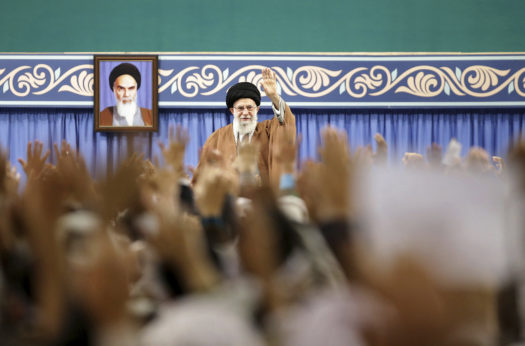
The murder of peaceful protesters underway for weeks now in Iran is far worse than what has been reported in media around the world, according to Navid Shomali, the international secretary of Iran’s Tudeh (Communist) Party.
“The numbers being killed are rising every day and have already reached at least into the many hundreds,” Shomali told People’s World in a phone call Sunday. “We are calling upon all progressive organizations and parties, including all human rights groups, to issue statements of support for the Iranian people,” he said.
In the United Kingdom, the Committee for the Defense of the Iranian People’s Rights (CODIR) has already called on international organizations to put pressure on the Iranian regime to halt the violence against peaceful demonstrations.
CODIR assistant general secretary Jamshid Ahmadi told the press that observers and doctors in Iran have witnessed protesters shot in their heads by forces using military-issued ammunition.
“Peaceful protests have been met with extreme and systematic violence from the police and security services across the country,” Ahmadi said, adding, “Hundreds are dead and thousands have been wounded in a continuing brutal crackdown by the authorities.”
In addition, according to reports smuggled out of the country, hundreds more are missing. Information leaking out from hospitals in Iran indicates the majority of those killed are being shot in the head or the upper torso.

The reports often come without names attached because of the severe repression announced sources would face in the country. Iranian authorities have shut down the internet, making it more difficult to get accurate information about the killings.
The British socialist newspaper Morning Star reported Sunday that Ali Khamenei, Iran’s Supreme Leader, issued orders saying that the protest movement must be “crushed at whatever cost.”
Iranian officials warned yesterday that anyone trying to circumvent the internet ban by using any other means to get information about the protests out of the country would be arrested and charged with treason, which carries the death penalty.
The actions by Iran have drawn the ire of groups that have condemned U.S.-imposed sanctions against Iran. The general secretary of one such organization, the Communist Party of Britain, lodged a protest with the Iranian embassy in London.
“While our party has campaigned against the imposition of sanctions by the United States, we deplore and condemn the suspension of civil rights, the indiscriminate killing of demonstrators, and mass arrests which have taken place,” CPB leader Robert Griffiths said.
Severe economic hardship is behind the latest protests in Iran. The economy, which has been failing for years, has gotten worse recently with the announcement of a 50% hike in the price of fuel. Sanctions by the U.S. have, of course, made matters worse for the Iranian people while they have done little or nothing to curb the reactionary government. Trump’s tearing up of the nuclear arms deal too has had a negative effect by further isolating the country and strengthening the hand of the radical theocratic security forces within the country.
Attempts by the government to make workers bear the full cost of Iran’s economic problems have triggered a variety of labor actions ranging from strikes by truck drivers and industrial workers, on the one hand, to strikes and protests by teachers on the other. Leaders of those unions have been imprisoned and report having been subjected to torture.
Sharan Burrow, general secretary of the International Trade Union Confederation, has condemned the repression, urging the government to tackle the causes of the protests instead.
The repression raises new questions about the extent of the power of the Iranian Revolutionary Guard and its associated security and para-military forces—not just in Iran but also in neighboring Iraq. They have had growing influence in Iraq since the U.S. invasion and occupation of that country in 2003.
Known for years for their harsh attacks on workers in Iran, it does not come as a surprise that they would be involved in the recent stepped-up repression against workers in Iraq as well. The labor movement has recently made gains in Iraq be electing pro-labor and progressive candidates, making itself a target for right-wing theocratic forces such as the ones on the move in Iran.










